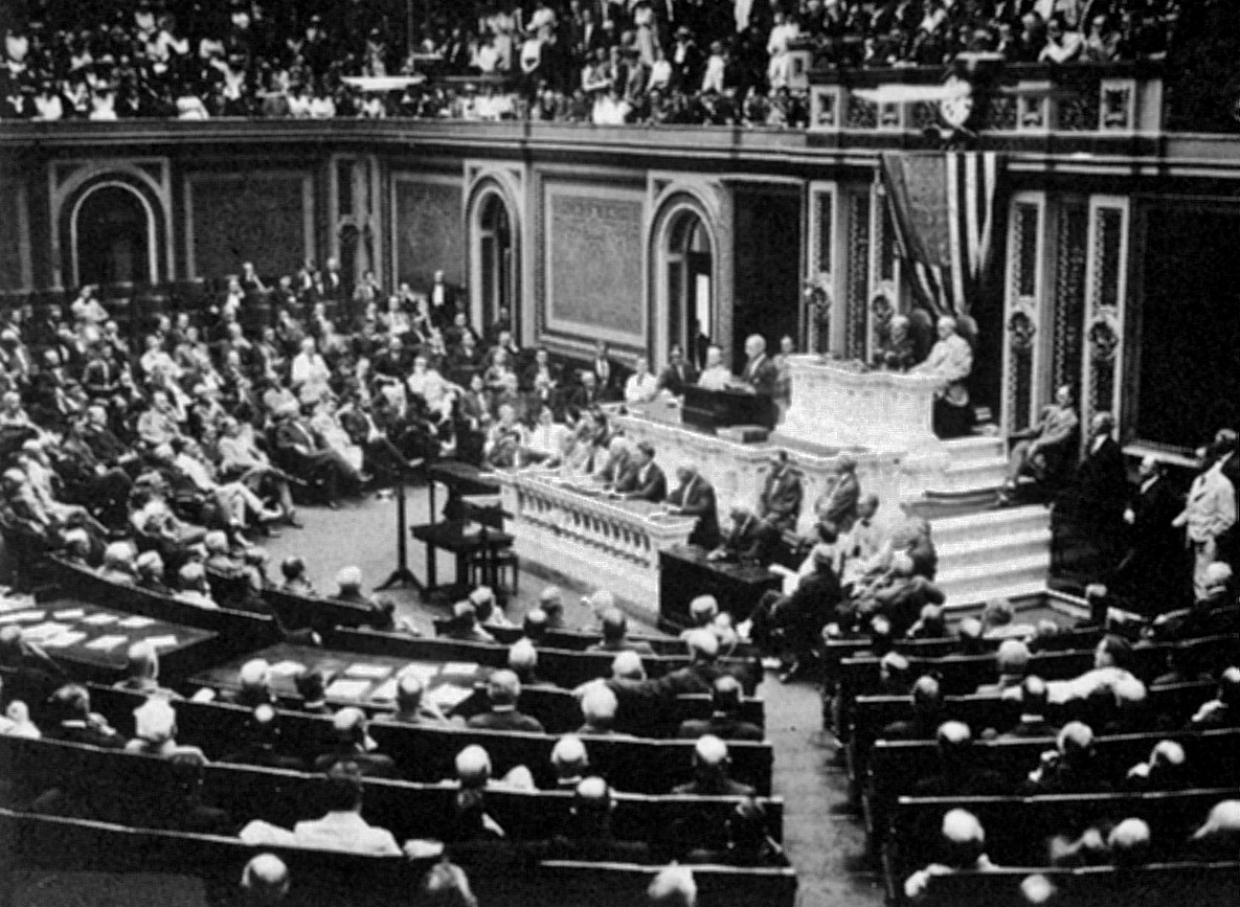"War has come, and we must all face it steadfastly and cheerfully."
The Almanac and Richard Kreitner
Woodrow Wilson announces to Congress on February 3, 1917 that official relations with the German Empire have ceased. (Wikimedia Commons)
The Nation was strongly against United States entry to the World War since the beginning, so the following note more or less welcoming Wilson’s request for a declaration of war on Germany must have come as a surprise to some readers. It is clarifying, however, to know that the editorial, “The Decision for War” (April 5, 1917), was written by Rollo Ogden, editor of the New-York Evening Post, and not by Oswald Garrison Villard, publisher of The Nation. Within a year of this editorial being published, Villard (who owned both publications) took over editorial control of the weekly magazine and sold off the daily paper, mostly because he was more pacifist than Ogden and the rest of the existing staffs of both publications, and wanted to use The Nation to forward his anti-militarist vision for American post-war policy. It is not likely that Villard would have written an editorial quite as restrained as Ogden’s.
War has come, and we must all face it steadfastly and cheerfully. If the doctrines we have maintained are well-founded, the event will justify them—will show that there is no greater evil that militarism, and that, after this war, the nations will be compelled to form what President Wilson calls a "league of honor" to insist upon disarmament and to devise some means of enforcing peace, so that the world may be a fit place for civilized man to live in. All told, Americans may take deep satisfaction in the fact that they enter the war only after the display of the greatest patience by the Government, only after grievous and repeated wrongs, and upon the highest possible grounds. There can be no doubt that the country will respond instantly to that leadership which the President has now given in the most memorable of all his addresses.
To mark The Nation’s 150th anniversary, every morning this year The Almanac will highlight something that happened that day in history and how The Nation covered it. Get The Almanac every day (or every week) by signing up to the e-mail newsletter.
The AlmanacToday in history—and how The Nation covered it.
Richard KreitnerTwitterRichard Kreitner is a contributing writer and the author of Break It Up: Secession, Division, and the Secret History of America's Imperfect Union. His writings are at richardkreitner.com.